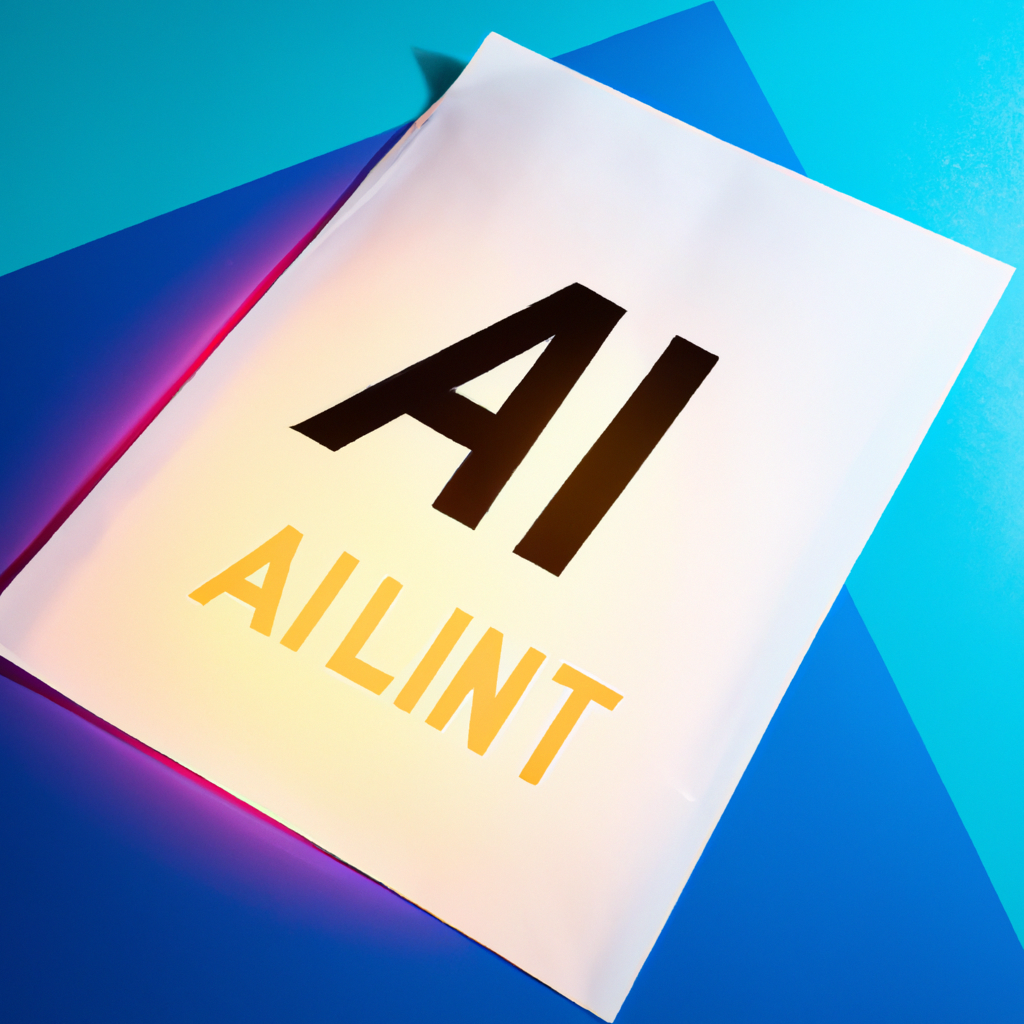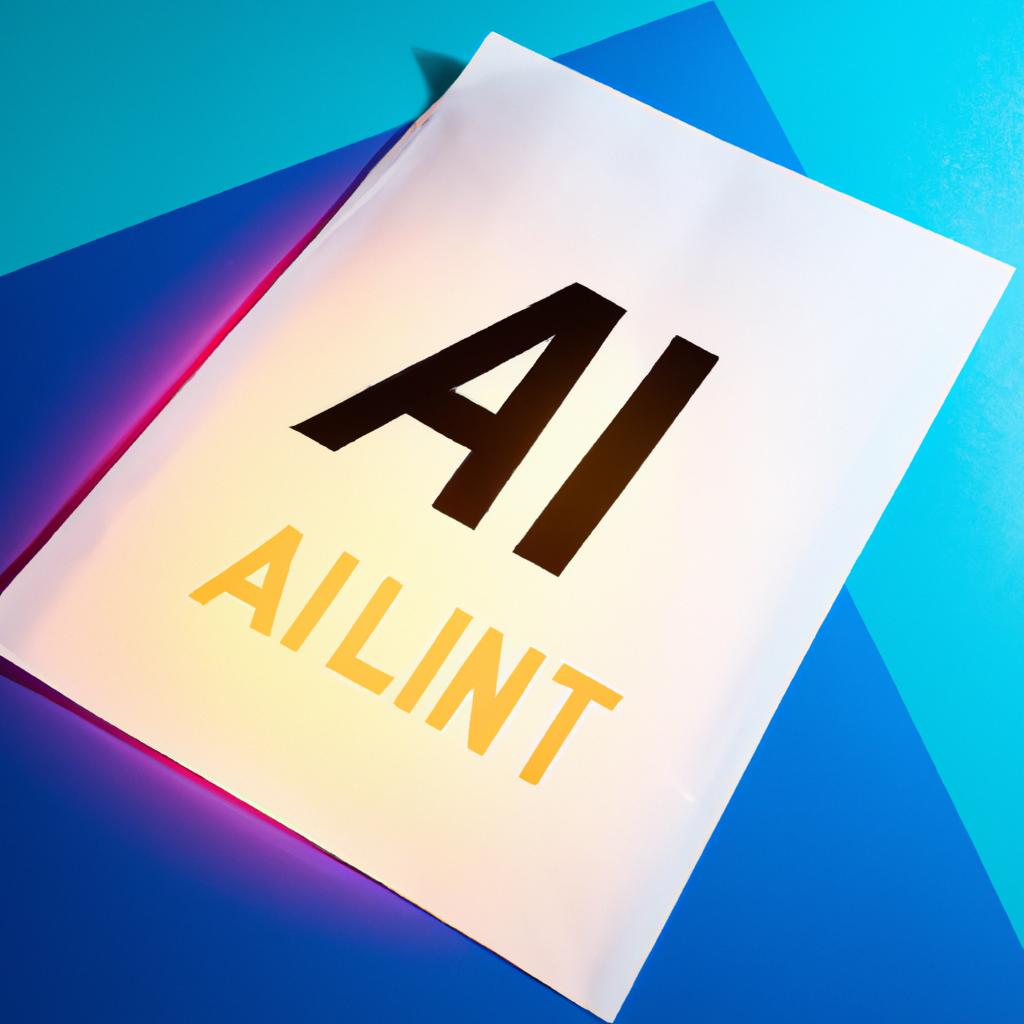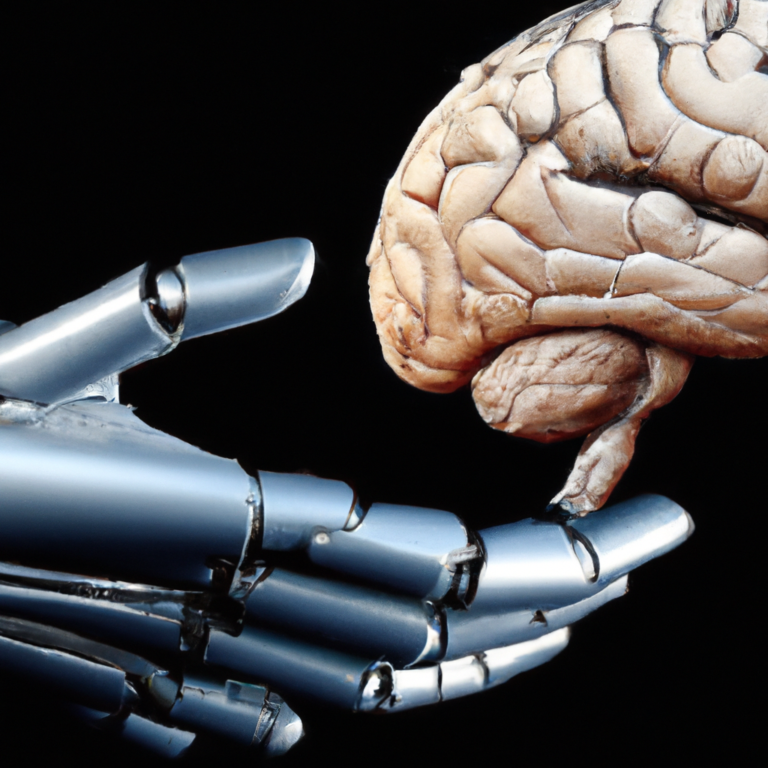AI In The Metaverse: How AI Is Shaping The Future Of The Virtual World

Step into the fascinating world of the metaverse, where artificial intelligence (AI) is playing a pivotal role in shaping its future. From virtual reality to immersive online experiences, AI has become an essential part of creating lifelike environments and enhancing user interactions. Discover how AI is revolutionizing the way we navigate and interact within the virtual world, and how it holds the key to unlocking limitless possibilities for the future of the metaverse. Exciting times lie ahead as we explore the boundless potential of AI in the metaverse.
AI in the Metaverse
The metaverse is a virtual reality space where individuals can interact with each other and their surroundings in a simulated environment. With the advancement of technology, artificial intelligence (AI) is playing a crucial role in shaping the future of the metaverse. AI can enhance the virtual experience by providing virtual assistants and guides, enabling advanced character interactions, generating realistic environments, and simulating behavioral intelligence and emotions. In this article, we will explore the various applications and advancements of AI in the metaverse, discuss ethical considerations, examine the future potential, challenges, and limitations, look at emerging trends and innovations, and analyze the impact of AI in the metaverse.

What is the Metaverse?
The metaverse is a virtual reality space that replicates the physical world in a digital environment. It allows users to interact with each other and their surroundings in real time, creating a sense of presence and immersion. It encompasses a wide range of virtual experiences, including social interactions, entertainment, gaming, education, and even work. The metaverse has the potential to transcend the limitations of distance and time, enabling people from different parts of the world to come together and engage in various activities. It is a vision for the future, where the boundaries between the physical and virtual worlds blur, and AI is at the forefront of this transformation.
Overview of AI in the Metaverse
Artificial intelligence is the driving force behind the advancements in the metaverse. AI algorithms and technologies enable the creation of intelligent virtual entities, realistic environments, and interactive experiences. AI can understand and respond to human interactions, generate lifelike characters, simulate emotions, and create immersive environments. It brings the metaverse to life by providing a seamless and engaging virtual experience. AI in the metaverse can be broadly categorized into four applications: virtual assistant and guide, advanced character interaction, realistic environment generation, and behavioral intelligence and emotion simulation.
Applications of AI in the Metaverse
Virtual Assistant and Guide
One of the key applications of AI in the metaverse is the provision of virtual assistants and guides. These AI-powered entities can assist users in navigating the virtual environment, providing information, answering questions, and offering recommendations. They can act as personal guides, helping users discover new areas, find relevant content, and connect with other users. Virtual assistants and guides leverage natural language processing and machine learning to understand user queries, learn from interactions, and provide personalized recommendations. They enhance the user’s experience by providing real-time assistance and improving the overall immersion in the metaverse.
Advanced Character Interaction
AI enables advanced character interaction in the metaverse, bringing virtual characters to life with realistic behavior and intelligent responses. Through natural language processing and machine learning techniques, AI can understand and interpret user interactions, allowing virtual characters to engage in meaningful conversations and actions. This creates a sense of realism and immersion, as users can interact with virtual characters in a way that resembles human-like interactions. Advanced character interaction opens up new possibilities for storytelling, gaming, and entertainment in the metaverse.
Realistic Environment Generation
Creating realistic environments in the metaverse is a complex task that AI helps to overcome. AI algorithms can generate virtual worlds that mimic the physical world by simulating realistic landscapes, objects, and textures. Deep learning techniques, such as generative adversarial networks (GANs), enable the creation of visually stunning and highly detailed environments. AI can also dynamically adapt and modify the environment based on user preferences and interactions, creating a personalized and immersive experience. Realistic environment generation through AI enhances the sense of presence and engagement in the metaverse.
Behavioral Intelligence and Emotion Simulation
AI in the metaverse goes beyond visual and auditory aspects and focuses on simulating behavioral intelligence and emotions. AI algorithms can analyze user interactions, facial expressions, and body language to understand and simulate emotions in virtual characters. This allows for realistic and empathetic interactions, where virtual characters respond dynamically to user emotions and actions. By incorporating behavioral intelligence and emotion simulation, AI enhances the social aspects of the metaverse, enabling users to form meaningful connections and relationships with virtual entities.
Advancements in AI for the Metaverse
Artificial intelligence has made significant advancements in recent years, and these advancements have paved the way for its integration into the metaverse. Several key technologies and techniques are driving these advancements:
Machine Learning and Deep Learning
Machine learning algorithms, especially deep learning neural networks, are at the core of AI advancements in the metaverse. These algorithms can analyze vast amounts of data, learn from patterns, and make predictions or generate new content. In the metaverse, machine learning and deep learning techniques enable intelligent behavior, realistic character interactions, and personalized experiences. They empower AI entities to adapt and improve their capabilities based on user feedback and interactions.
Natural Language Processing
Natural language processing (NLP) allows AI entities in the metaverse to understand, interpret, and generate human language. NLP enables virtual assistants and guides to comprehend user queries, provide relevant responses, and engage in meaningful conversations. It relies on techniques like text analysis, sentiment analysis, and language generation to facilitate effective communication and interaction in the metaverse. NLP advancements have significantly improved the user experience by making interactions with AI entities more natural and intuitive.
Computer Vision and Image Recognition
Computer vision and image recognition technologies enable AI in the metaverse to perceive and understand visual information. These technologies can identify objects, extract relevant information, and analyze the context of a scene. In the metaverse, computer vision and image recognition algorithms contribute to creating realistic environments, detecting user gestures and expressions, and enhancing virtual character interactions. They enable users to interact with the metaverse through augmented reality or virtual reality devices, making the virtual experience more immersive and engaging.
Reinforcement Learning
Reinforcement learning is a technique in AI that allows an entity to learn from its interactions with the environment and improve its decision-making abilities over time. In the metaverse, reinforcement learning can be used to train AI-controlled characters to adapt to user actions and preferences. It enables virtual characters to learn and evolve based on user feedback, enhancing their intelligence and creating more realistic and personalized interactions. Reinforcement learning is particularly beneficial in gaming and interactive storytelling scenarios in the metaverse.
GPT-3 and Language Understanding
GPT-3 (Generative Pre-trained Transformer 3) is a state-of-the-art language processing model that has revolutionized natural language understanding and generation. It can generate human-like text, answer questions, and engage in conversations. In the metaverse, GPT-3 and similar language models enable virtual assistants and guides to provide more intelligent and context-aware responses. They can understand complex queries, generate coherent and informative text, and interact with users in a more natural and human-like manner. GPT-3 has significantly advanced the quality of language understanding in the metaverse.

Ethical Considerations in AI for the Metaverse
As AI continues to play a prominent role in the metaverse, it is essential to address the ethical considerations associated with its use. The following areas require careful consideration:
Data Privacy and Security
In the metaverse, user data is collected and used to enhance the virtual experience. Ensuring data privacy and security is crucial to protecting user information and preventing unauthorized access. AI algorithms must be designed to handle user data securely, with clear consent and transparency. Strict data protection practices, robust encryption methods, and adherence to privacy regulations are necessary to build trust and confidence in the metaverse.
Algorithmic Bias and Discrimination
AI algorithms can be susceptible to bias and discrimination, as they learn from historical data that may contain biased or unfair information. In the metaverse, AI entities must be trained on diverse and unbiased datasets to avoid perpetuating societal biases and prejudices. It is essential to implement fairness and transparency in AI algorithms to ensure equal opportunities and representation in the metaverse.
Virtual Identity and Authenticity
With the proliferation of AI in the metaverse, the concept of virtual identity and authenticity becomes significant. Users may create virtual avatars or personas that represent them in the virtual world. Ensuring that these virtual identities are distinguishable from real-world identities and protecting personal information associated with them is crucial. Authenticity in the metaverse should be maintained to prevent identity theft or impersonation.
Ownership and Control of AI Entities
The ownership and control of AI entities in the metaverse raise ethical questions. As AI becomes more sophisticated and autonomous, determining who owns and controls virtual entities becomes challenging. Clear policies and guidelines need to be established to address issues of ownership, intellectual property rights, and accountability in the metaverse. Balancing the benefits of AI with the rights and responsibilities of users is necessary to create a fair and equitable metaverse environment.
The Future of AI in the Metaverse
The integration of AI in the metaverse has immense potential, and its future is promising. Some key developments and trends to look forward to are:
Integration with Physical World
In the future, AI in the metaverse will likely become more intertwined with the physical world. Augmented reality (AR) and virtual reality (VR) technologies will enable seamless transitions between the physical and virtual environments. AI will enhance our everyday lives by providing personalized information, augmented experiences, and real-time assistance, blurring the boundaries between the physical and virtual realms.
Collaboration with Human Users
AI in the metaverse will increasingly facilitate collaboration between human users and virtual entities. Virtual assistants and guides will actively participate in conversations, help users solve problems, and contribute to decision-making processes. The symbiotic relationship between humans and AI in the metaverse will lead to improved productivity, creativity, and innovation.
Enhanced Personalized Experiences
AI will enable highly personalized experiences in the metaverse. Virtual entities will understand and adapt to individual user preferences, creating tailored content, recommendations, and interactions. AI algorithms will analyze user data and behavior to deliver personalized experiences, fostering deeper engagement and satisfaction.
AI as Artists and Creators
As AI gets better at understanding human preferences and generating content, it has the potential to revolutionize the creative industry in the metaverse. AI-powered artists can generate immersive virtual worlds, create realistic characters and landscapes, compose music, and even write stories. AI will become not just a tool for creators but a creator in its own right, offering novel and unique experiences in the metaverse.

Challenges and Limitations of AI in the Metaverse
While AI offers exciting possibilities in the metaverse, there are several challenges and limitations that need to be addressed:
Computational Power and Infrastructure
Building and maintaining the computational power and infrastructure required to support AI in the metaverse is a significant challenge. AI algorithms often demand extensive computational resources, and delivering real-time responsiveness in a scalable manner can be demanding. Ensuring a robust and high-performing infrastructure to handle the computational demands of AI in the metaverse is crucial.
Real-time Responsiveness
Real-time responsiveness is critical for a seamless and immersive experience in the metaverse. AI entities must process user interactions and provide immediate feedback to create a sense of presence and engagement. Achieving real-time responsiveness in complex and dynamic virtual environments can be challenging due to the computational and processing requirements. AI algorithms need to be optimized to reduce latency and ensure smooth interactions.
Human-like Intelligence and Empathy
Creating AI entities with human-like intelligence and empathy is a complex goal. While AI algorithms can mimic certain aspects of human behavior and emotions, achieving true human-like intelligence and empathy remains a challenge. Building AI entities that can understand and respond to a wide range of human emotions, intents, and nuances is an ongoing area of research and development.
Regulatory Frameworks
As AI continues to evolve in the metaverse, regulatory frameworks need to be established to address concerns related to privacy, security, fairness, and ethical use. Developments in AI should be guided by clear guidelines and policies that protect user rights, prevent misuse, and ensure responsible AI development and deployment.
Emerging Trends and Innovations in AI for the Metaverse
AI in the metaverse is a rapidly evolving field with several emerging trends and innovations:
Virtual Reality and Augmented Reality Integration
Virtual reality (VR) and augmented reality (AR) technologies are increasingly being integrated into the metaverse. VR provides immersive and interactive experiences, while AR overlays virtual content onto the physical world. AI algorithms are being developed to enhance VR and AR interactions, enabling realistic simulations, object recognition, and spatial mapping.
Blockchain Technology and NFTs
Blockchain technology and non-fungible tokens (NFTs) are gaining traction in the metaverse. Blockchain provides a decentralized and secure infrastructure that can be used for asset ownership, authentication, and secure transactions. NFTs enable the creation and ownership of unique digital assets, such as virtual land, artwork, and in-game items. Integrating AI with blockchain and NFTs can enhance security, ownership rights, and monetization opportunities in the metaverse.
AI-Generated Content and Worlds
AI algorithms are being used to generate content and virtual worlds in the metaverse. From procedurally generated landscapes to AI-generated characters and narratives, AI can automate and accelerate content creation. AI-generated content can provide endless possibilities for exploration, discovery, and immersive experiences in the metaverse.
Social and Emotional Skills Development
AI in the metaverse has the potential to foster social and emotional skills development. Virtual environments can be designed to facilitate social interactions, collaboration, and empathy-building experiences. AI agents can act as social companions, helping users practice communication skills, emotional intelligence, and conflict resolution in a safe and supportive environment.

Impacts of AI in the Metaverse
The integration of AI in the metaverse has the potential to bring about significant impacts in various domains:
Transforming Entertainment and Gaming
AI in the metaverse is revolutionizing the entertainment and gaming industry. Virtual characters with advanced intelligence and natural language processing capabilities enhance storytelling and interactive experiences. AI-powered NPCs (non-player characters) offer dynamic and unpredictable interactions, making gameplay more engaging and challenging. AI-generated content provides users with a constantly evolving and personalized entertainment experience.
Revolutionizing Communication and Collaboration
AI in the metaverse is transforming communication and collaboration. Virtual assistants and guides can facilitate seamless communication between users, overcoming language barriers and improving accessibility. AI-powered translation and interpretation services enable real-time communication between users speaking different languages. Collaboration in virtual environments allows for global teamwork and remote collaboration, enhancing productivity and innovation.
Education and Learning
AI in the metaverse has the potential to revolutionize education and learning. Virtual environments can provide immersive and interactive learning experiences, allowing students to explore new concepts and topics in a hands-on manner. AI-powered virtual tutors and mentors can deliver personalized learning content, provide assistance, and adapt to individual learning styles. The metaverse can enable lifelong learning and democratize access to education.
Economic Opportunities and Job Creation
The integration of AI in the metaverse creates new economic opportunities and job roles. AI technologies require skilled professionals for development, implementation, and maintenance. The metaverse fosters the growth of virtual economies, where users can create and sell virtual assets, services, and experiences. AI-driven industries, such as virtual reality content creation and AI-artist collaborations, offer new avenues for creativity and entrepreneurship.
Critiques and Concerns about AI in the Metaverse
While AI in the metaverse brings numerous benefits, there are valid critiques and concerns that need to be addressed:
Loss of Human Connection
The increased reliance on AI in the metaverse raises concerns about the loss of human connection. As users interact more with AI entities and virtual environments, there is a risk of reducing real-world social interactions and relationships. It is important to strike a balance between virtual experiences and real-life human connections to maintain social well-being.
Increased Dependence on AI
Over-reliance on AI in the metaverse may lead to decreased critical thinking and problem-solving skills. Depending solely on AI for decision-making and problem-solving can hinder personal growth and development. It is essential to encourage users to actively participate in decision-making processes and maintain a healthy balance between human judgment and AI assistance.
Escapism and Addiction
The immersive and engaging nature of the metaverse can lead to potential issues of escapism and addiction. Spending excessive time in the virtual world can negatively impact mental health, social interactions, and overall well-being. It is crucial to promote healthy usage and establish guidelines for responsible engagement in the metaverse.
Commercial Exploitation
The metaverse presents new opportunities for commercial exploitation. Companies may collect and monetize user data in ways that compromise privacy and security. There is a need for clear regulations and ethical standards to prevent the misuse of AI in the metaverse, protect user rights, and foster a fair and transparent ecosystem.
Conclusion
Artificial intelligence is shaping the future of the metaverse by enhancing virtual experiences, enabling advanced interactions, and creating realistic environments. The applications and advancements of AI in the metaverse offer exciting possibilities in entertainment, communication, education, and economic opportunities. However, ethical considerations, challenges, and concerns need to be addressed to ensure a responsible and inclusive metaverse. With the integration of AI, the metaverse has the potential to transform the way we connect, learn, and interact, opening up a new dimension where the boundaries between the physical and virtual worlds blur.
Want to write articles like us? Get your copy of AI WiseMind here!





